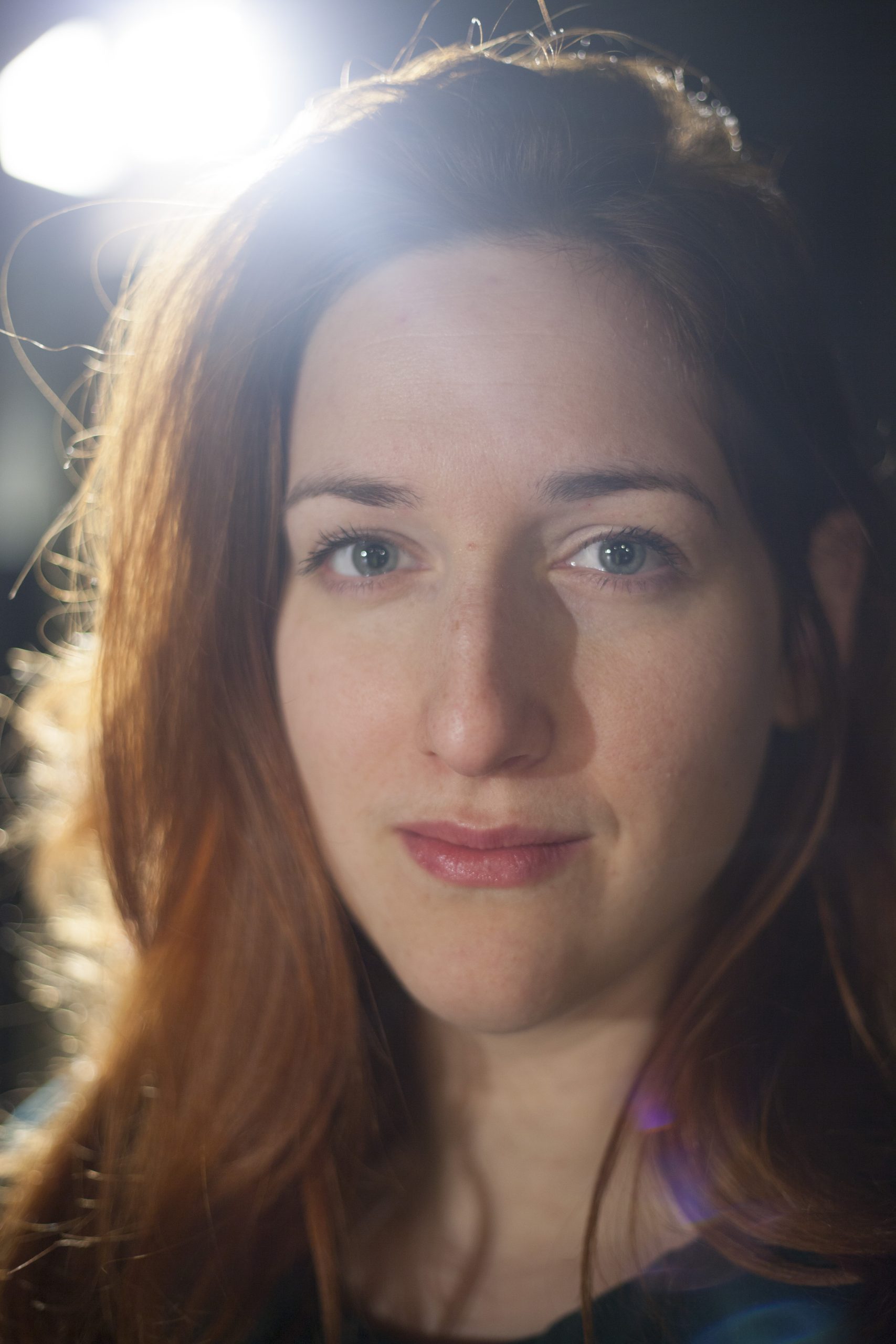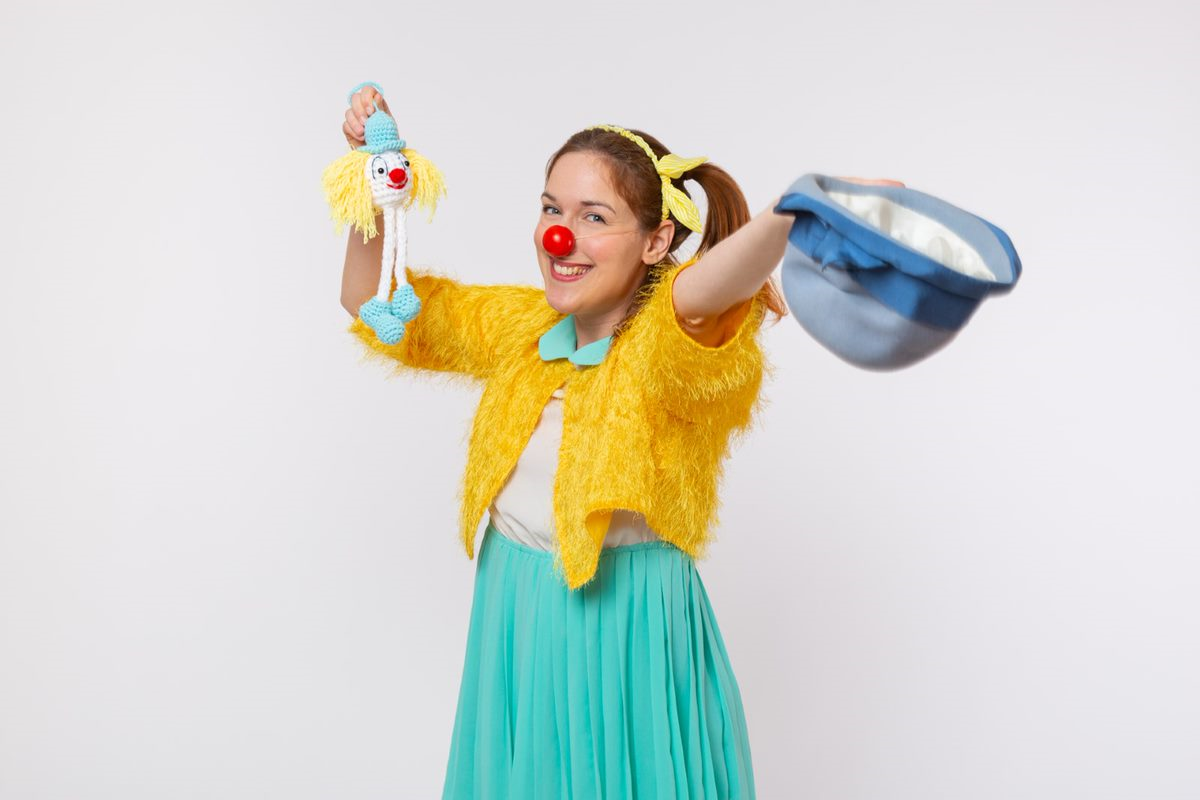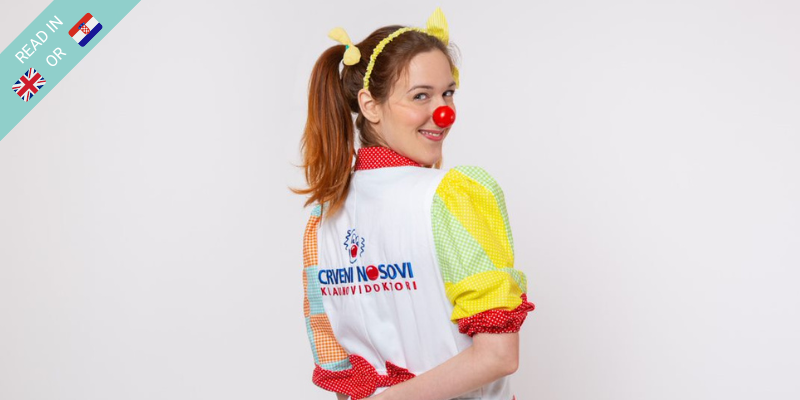Read in Croatian.
Working with elderly with dementia is not easy. Sendi Bakotić from the Clownexus partner Crveni Nosovi in Croatia shares her insights on how to connect with elderly who seem not to respond to outside stimuli.

Sendi Bakotić:
My grandma had developed dementia years before I was a healthcare clown. I knew nothing about it, yet I felt I could speak her language. Somewhere between my love for my grandmother, Samuel Beckett and surrealist poetry, I fell in love with the language of dementia.
Now, after I met many new friends with dementia in my clown work, the fascination doesn’t seem to fade. There is not one language! There are hundreds, thousands! As many as there are people. Some understand, but cannot speak. Some speak only one word. Some cannot see, some cannot hear, some observe, some sleep, some hallucinate, some do not respond in any obvious way. Where do we meet, then? I don’t know.
Lesson 1: Know your audience.
Who is this lovely human, sitting all alone in her own world? Who is the person behind the disease? Any information we can get from the social worker, nurse or a family member are potential bridges between our worlds. What they did for a living, what hobbies did they enjoy, what kind of music they like, or did they secretly write a science fiction novel? Spoiler alert: some did, indeed.
Lesson 2: All you need is time.
And love, of course. But first – time. Time to connect, at the speed of trust. Time to bring calmness, to breathe, to offer security in a new situation where, suddenly, there is a clown! As they were not confused enough! Then we practice to wait without waiting. We give space to emotions, whichever emerge, we look for signs of engagement or joy, and we play.
Lesson 3: No one can take away our creativity and humour.
When we are left without the ability to do math or remember history, or language, or our own memories, what is left? The first things we learn in life are the last things we forget. And what we never forget is love, creativity and humour. And this is where we meet.
I remember one encounter as it was yesterday. My clown colleague and I brought an old typewritter to the dementia ward that day. One woman, the same one that was confessing deep sadness last time we met, lit up immediately. „Give it to me!” she said. „I’m a secretary!”. She took the typewritter, checked the paper position, and started typing the date and the city, as she always did. As I was helping her with the date (not that it mattered), she soon realized our typewritter was broken. After a short dissapointment and criticism from this typewriting professional, I did what we clowns do: I proposed a play. Now that there will be no written evidence about what we write, we could write whatever we want and no one will know. She understood and uttered: „this machine is f…”, and stopped herself. It is not appropriate to swear for a decent lady as herself. So I secretly helped her out. I took a risk and typed what I thought she was thinking. After a moment of suspense, she burst into laughter. I continued to write more and there came the first tears of laughter I witnessed in the dementia ward. We were both laughing for minutes, loving to be friends in mischief.
If memories fade, emotions stay.
I know she remembers me, as do the others. We leave them in a happy hangover that lingers, and they greet us with more and more joy each time we visit them. But also, in dementia, the part of the brain responsible for emotions takes over for the cognitive part that’s fading. Elderly with dementia are more sensitive and honest than ever. If we are not completely honest with them, they will know. But if we give our whole heart, they will welcome it with theirs.
I’ve managed to feel as a child my whole life, and through this work I feel that maybe, just maybe, I’m growing up. I feel deep respect for the other, I find depth in pain, I listen to different truths and validate all realities. I’m learning to be the one that is calm and offers security, as well as play and imagination. I stare into the faces of life I never thought I would and find reasons to smile, only because they can too.
And whenever I feel that I don’t know, I know we don’t have to know anything to be together.






Recent Comments